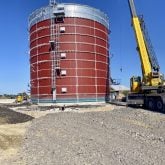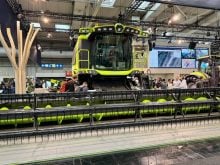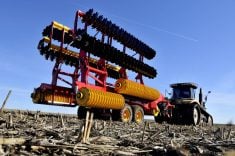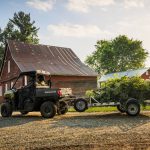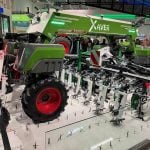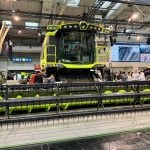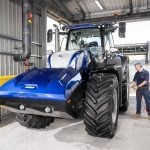In practical terms, it’s a paper transaction. But a new pilot project spearheaded by Enbridge Gas and the Bluewater Recycling Association (BRA) to run a garbage truck exclusively on renewable natural gas (RNG) from a methane digester on a southwestern Ontario dairy farm is being touted as a glimpse into a carbon-neutral, circular-economy future.
Why it matters: The addition of RNG to the natural gas distribution system in Ontario is in its infancy but this pilot project could lead to more methane digesters on farms and landfills.
“We’re excited about (the one-month pilot project),” said Francis Vielleux, president of the municipally owned cooperative in Huron Park that collects and processes waste and recyclables for 22 municipalities in Huron, Perth, Middlesex and Lambton counties.
Read Also
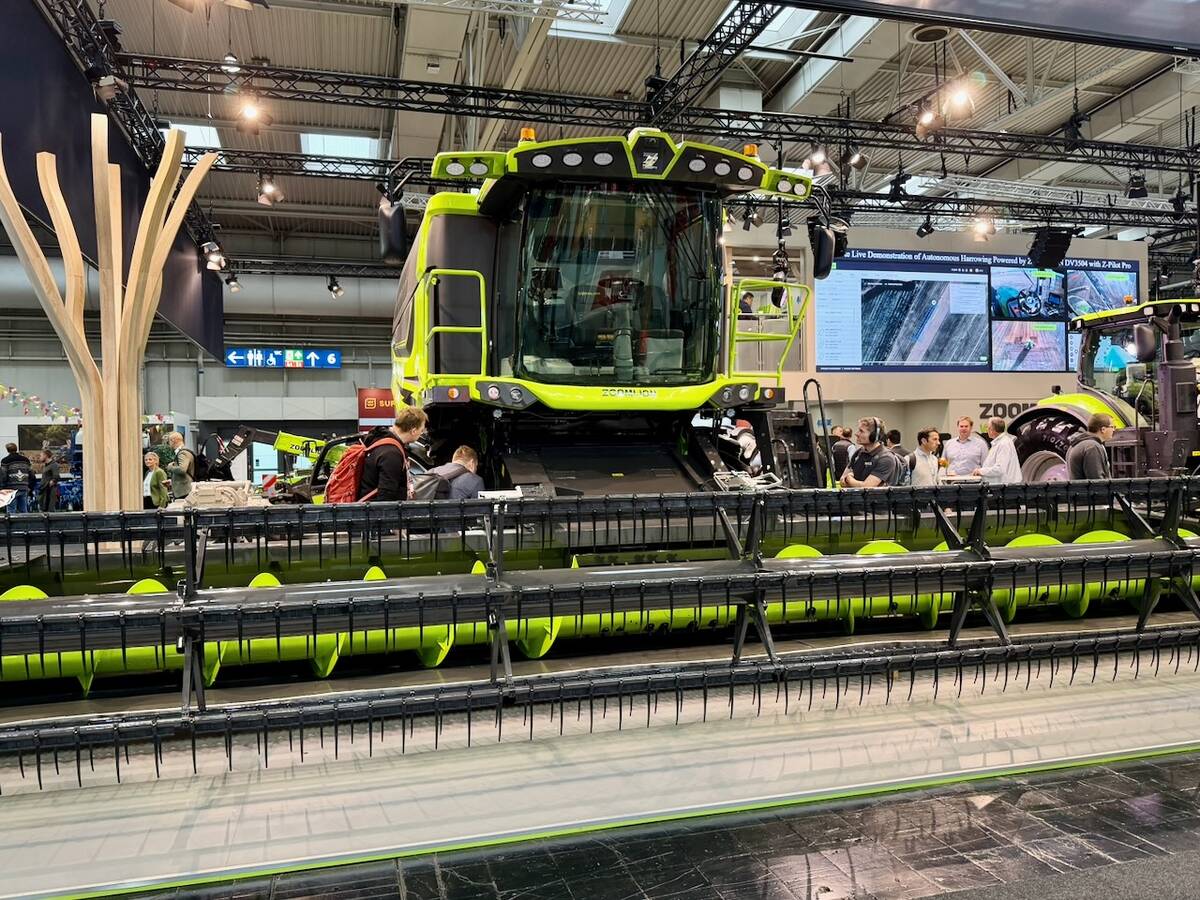
Agritechnica 2025: Day 3
Zoomlion’s diesel-electric hybrid combine drives draws interest, data standards look to keep up to technology change and tractors of the year are named at German farm show Agritechnica 2025.
“Our fuel source (for the garbage truck) is coming from a farm that we serve every week. … We like that. We like to keep things local.”
Vielleux told Farmtario that BRA has converted approximately two-thirds of its 43-truck fleet to natural gas from diesel, in keeping with a decision made in 2014.
“In about two years, we expect to be fully converted,” he said.
Enbridge approached the Ontario Waste Management Association (OWMA), of which BRA is a member, wondering if any waste collection companies would be willing to pay the increased price for RNG compared to regular compressed natural gas as a way to promote more RNG production. BRA signed on because, as Vielleux said, “having a clean, renewable and local source of energy for our fleet embodies everything BRA believes in.”
“Early investments in compressed natural gas are paying environmental dividends via RNG as a straightforward path for decarbonizing transportation today,” said Enbridge President Michele Harradence, in a news release about the project. “We’re pleased to support their efforts as we work together to transition Ontario to a clean energy future.”
RNG, when effectively purified from its methane digester source, is interchangeable with natural gas as a vehicle fuel so no changes are needed to the truck for the pilot project. BRA invested in a natural gas fueling facility for its fleet in 2014 so the one-month agreement requires no upgrades on the refueling side.
The RNG truck will pull up to the same fueling facility as the regular natural gas trucks and – on paper at least – fill with fuel produced by the dairy farm’s methane digester.
The pilot project, with support from the OWMA, is being promoted as creating “Ontario’s first carbon-negative refuse-collection truck.”
“It takes about 100 cows to fuel a truck every day, so this farm could fuel 20 of our trucks,” Vielleux said of the 2,000-animal dairy on which the methane digester and RNG purifying infrastructure are located. Across Ontario, 10 waste facilities, mainly landfills, send RNG from methane digesters into the regular natural gas pipeline.
“We don’t expect supply (of RNG) to be an issue,” said Vielleux. BRA isn’t running all its trucks on RNG because the price disparity in Ontario is too much. It costs more to produce RNG so, without outside intervention, it costs more to buy.
“It’s more expensive,” Vielleux said of RNG. When he spoke with Farmtario in late August, RNG was selling for $1.25 per litre. That compared favourably with diesel at $2 per litre but not with regular natural gas at 79 cents per litre.
“In B.C., they’re giving carbon credits (for using RNG) so it comes out more or less even. But that’s not happening in Ontario yet.”
Still, he believes BRA could be open to paying more because it would know the fuel was produced locally, even if it remains a paper transaction.
“Every step you go through along the (production and distribution chain), you lose some level of efficiency,” Vielleux said. If the day ever came that BRA could refuel its trucks with RNG coming directly from a farm-based production facility in its service area, he expects support would be strong.
He added that truly RNG-fuelled garbage trucks are already on the road in the U.S. but because the fuel source is typically from methane digesters owned by waste management companies that run the garbage trucks, the fuel source from landfills is considerably less pure than what comes from a typical on-farm digester.
“When it’s from a farm, we know exactly what we’re getting … so we don’t have any concerns about the effects on the engine.”
Enbridge says there are more than 30 RNG projects in various stages of development or construction in Ontario.
“Municipalities and businesses who operate fleets of waste collection vehicles like BRA and other OWMA members can achieve a zero-carbon footprint using RNG fuel, affordably and practically, without sacrificing performance, reliability or range,” the natural gas distribution company said in its news release.







